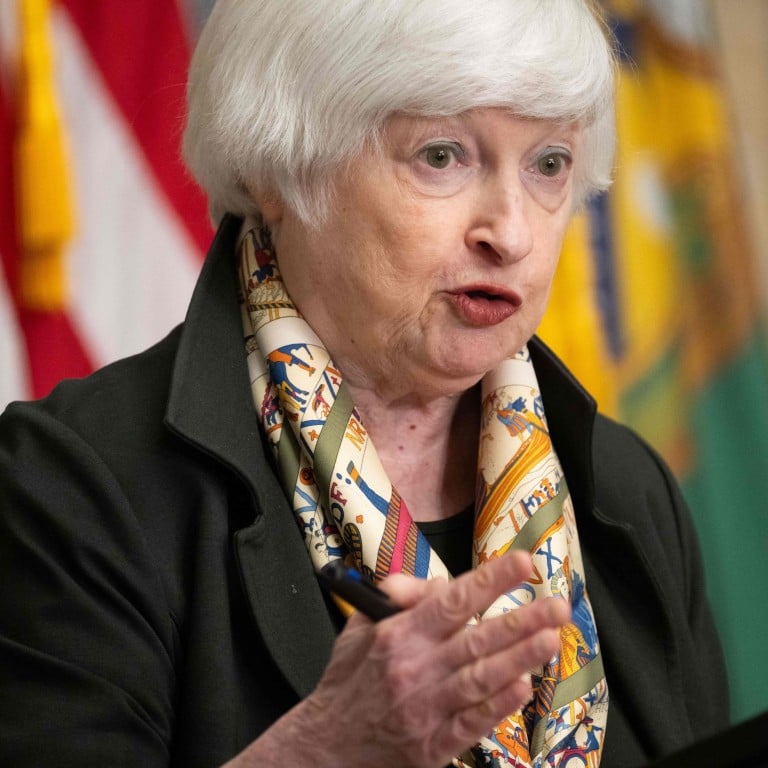
Senior US and Chinese officials hold talks on ‘industrial overcapacity’ and anti-money-laundering
- Treasury chief Janet Yellen attends exchanges marking fourth meetings of economic and financial working groups between Beijing and Washington
- ‘I continue to believe that addressing overcapacity and broader macroeconomic imbalances can help China’s own economy,’ she says
Senior finance and economic officials from the US and China held talks under recently launched exchanges on “industrial overcapacity” and anti-money-laundering in Washington on Tuesday.
“I continue to believe that addressing overcapacity and broader macroeconomic imbalances can help China’s own economy,” she said on Tuesday.
US-China ties experts urge powers to embrace shared interests and introspection
The Chinese embassy in Washington played down US concerns of overcapacity on Tuesday.
“True, China’s exports of electric vehicles, lithium batteries and photovoltaic products have increased in recent years, but that is the result of international division of labour and market demand,” said embassy spokesman Liu Pengyu.
“Balance between supply and demand is only relative,” he continued. “More often, imbalance is the norm. The best way to address such imbalances is to let the market forces play their role according to the law of value.”
The economic working group, led by China’s Liao and Jay Shambaugh, Treasury’s undersecretary for international affairs, agreed on Tuesday to regularly discuss “policies that support balanced growth of the domestic and global economies”.
Electric ‘beng bengs’ are a hit in the US. Now about those delivery charges …
The two sides also discussed the latest macroeconomic situation in both countries, shared global challenges like debt issues and broached US concerns about China’s non-market practices and industrial overcapacity, according to a Treasury readout.
Meanwhile, the financial working group, led by Xuan and Brent Neiman, Treasury’s assistant secretary for international finance, tackled issues tied to combating money laundering, including regulation of virtual assets and corporate beneficial ownership.
“Since it is secrecy that enables criminals to flourish, our collaborative effort is a key step forward to advancing the security of Americans and protecting the integrity of two of the largest financial systems in the world,” Yellen said of the initiative earlier in the month.
Both sides agreed on Tuesday to continue to meet regularly and hold additional technical exercises on operational resilience in the financial sector.
US must treat China more like a cold-war opponent: Republican policymakers
Other topics discussed by the financial working group on Tuesday included cross-border payments and data, swap-arrangement practices and sustainable finance.
Yellen praised the progress made on sustainable finance, noting that both sides had recognised the importance of transition finance to support environmental conservation, climate adaptation and the decarbonisation of various sectors.
Led by He and Yellen, the working groups were launched in September to facilitate progress on bilateral financial and economic policy matters.

